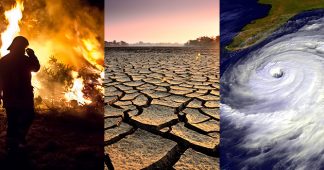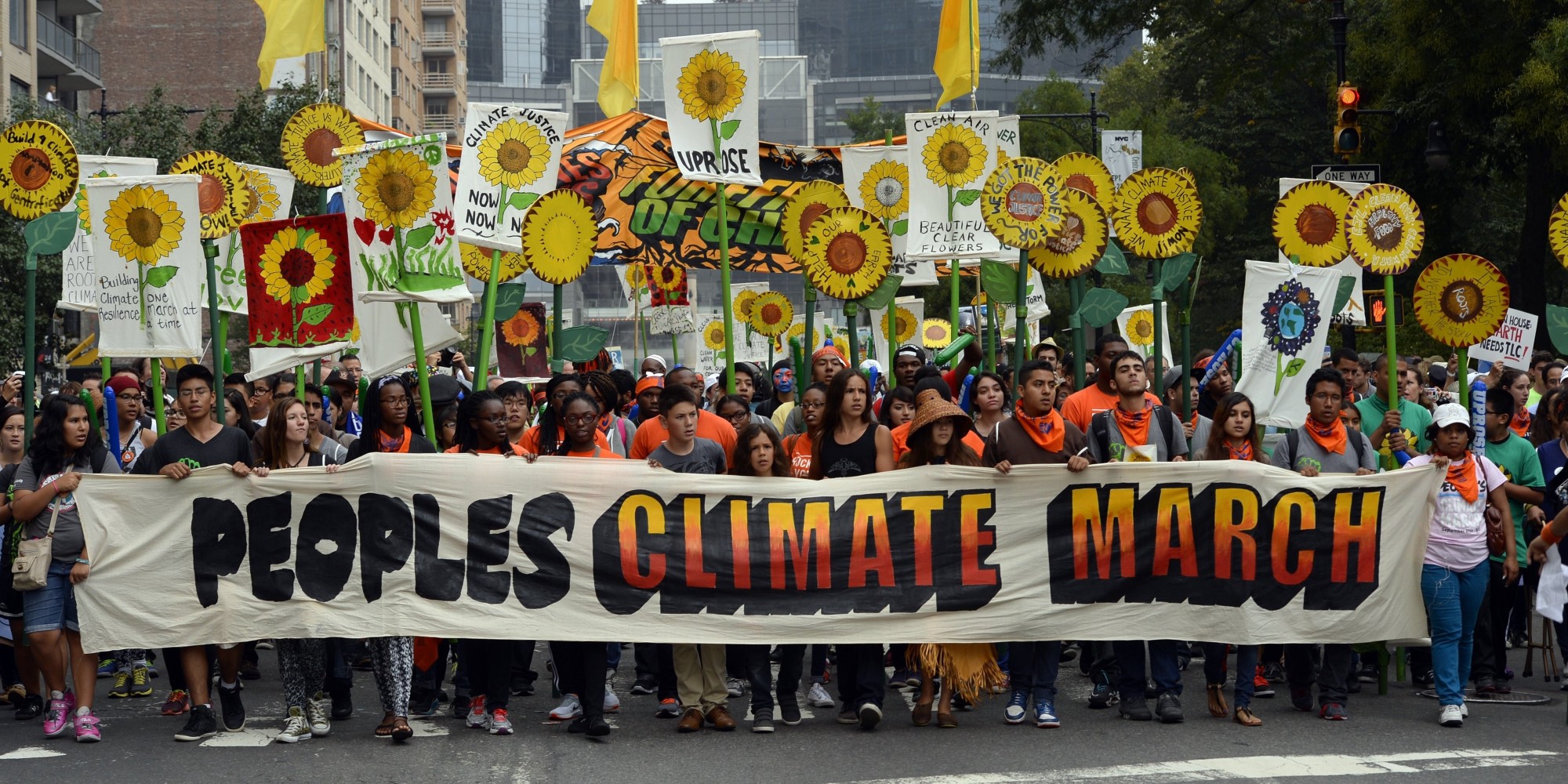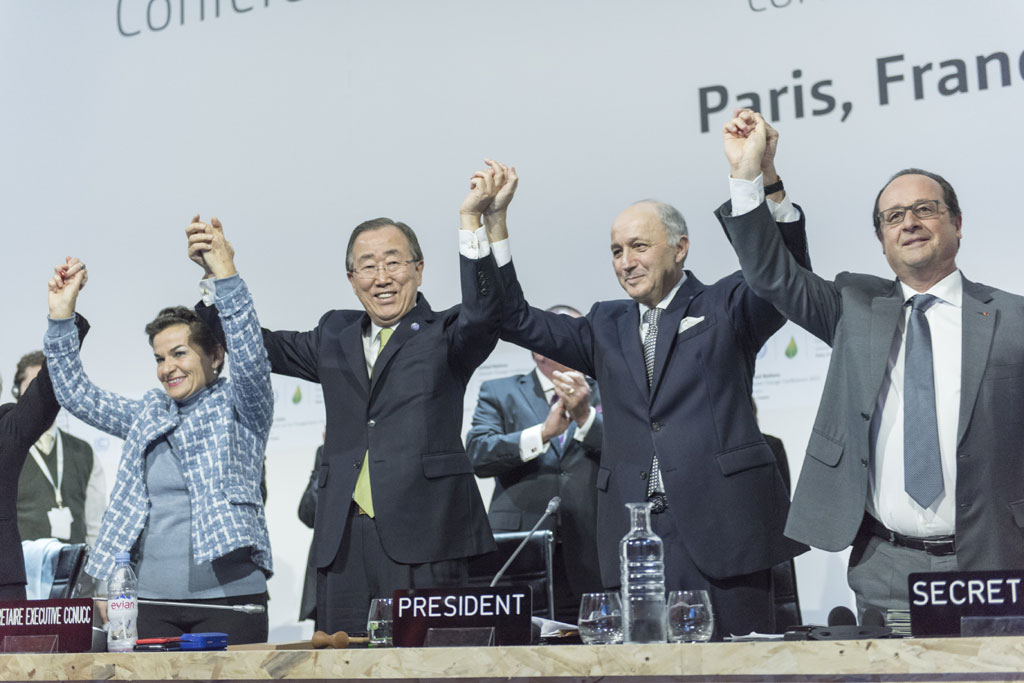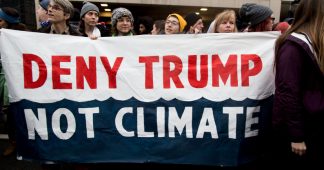The United Nations Climate Change Conferences are held each year in the framework of the relevant treaty that was opened for signature in 1992. This treaty aims at addressing climate change by imposing on all treaty signatories the obligation to reduce the emissions of the gases that are said to cause the greenhouse phenomenon. It requires the industrialized countries – in contrast to the developing countries – to achieve stabilization at the levels of 1990. The distinction between industrialized and developing countries derives from the assertion that the industrialized countries are responsible for the greater part of global emissions of greenhouse gases and also that they possess the institutional and financial ability to limit them. As a member of the European Union, Greece is included among the industrialized countries.
The first UN climate change conference was held in Berlin in 1995. The most recent, the 23rd, is being held at this moment (12th November 2017) in Bonn. The Presidency this year is held by Fiji. At the UN climate change conferences the presence of civil society has been conspicuous from the outset in the sense that there is participation by NGOs concerned with environmental problems, and indeed not only environmental problems but also problems of equality, relations between the sexes, etc. Many of the activists are committed to what is known as climate justice, something evidently based on a supposition of deliberate human intervention in the climate, because if the climate is determined by Mother Nature, or even a combination of Mother Nature and the unintentional effects of industrial development, it appears pointless to speak of justice, because presumably Mother Nature follows her own rules which are not dictated by the desires of human beings.
Apart from the influence of NGOs on the discussions there is an additional factor, which is noted by the organization Carbon Trade Watch, a group opposed to emissions trading, one of the central elements of UN methodology for the climate.
According to Carbon Trade Watch in the years that have passed since the first conference in Berlin we see the discussions moving further away from identification of the real causes of climate change, along with a spiraling of the negative effects, influencing ever wider areas and ever larger populations. Each year we see a more powerful presence of big corporations and a weaker influence of those suffering the damage.
The climate crisis has been transformed into an opportunity for new businesses, new sources of profit. Climate policies foster the financialization of nature. The elements of nature – carbon dioxide, water, biodiversity, become measurable units, which can be bought and sold and also become the object of stock exchange speculation.
Of course the NGOs oppose these developments, and the result is that the United Nations conferences have become a battlefield between large and small vested interests. Because they are increasingly losing the ability to influence developments at governmental level, the organizations that are being funded to participate in the conferences increasingly resort to the media, staging public relations stunts which sometimes resemble reality shows.
The growing distance between the summit and the base was addressed initially through stricter policing. At Cancun in 2010 and Durban in 2011, according to the activist Anne Petermann, official permission was required for every demonstration and protest. Even wearing a T-shirt with an unacceptable slogan on it was enough to get oneself thrown out of the conference. By the time of the 2015 Climate Summit in Paris a system of apartheid had grown up with a geographical distance of kilometres separating the officials on one hand from civil society on the other.
The greatest turmoil was produced by the functions that had maximum coverage from the media. If we can judge from the experiences of some of us in Paris, where we demonstrated around an issue that is buried totally and systematically by the television and the press, namely climate manipulation, the way in which we were treated by the police was finally more polite and their interest greater than in the case of subjects that had attracted the interest of the media, where both the demonstrators and the police were more aggressive and more closed.
As indicated, at this year’s conference in Bonn, Fiji has the presidency, and the focus of media attention was on the Pacific Climate Warriors. The aim of the Pacific Climate Warriors is abolition of fossil fuels. In October 2014 they blockaded the harbour of Newcastle in Australia, the country’s largest coal exporting port. Last week, to return to the present, the Pacific Climate Warriors blocked the entrance to a lignite mine in the Rhineland in German y.
Both in Australia and in Germany, not to mention other countries, the turn to renewable energy sources, chiefly from sun and wind, is facing many problems, which are not exclusively attributable to political pressure from the oil and mining lobbies. The Australian state that has made the greatest turn to renewables, particularly wind parks, now has the most expensive electricity in the world, and is plagued by blackouts. Many poor families can no longer afford to have electricity in their homes. Those who have their backs to the wall politically are not just the Greens and the Labor Party but also the big centre-right parties that have supported the turn to renewable energy sources. The nuclear lobby, which had been defeated in Australia on the electricity generation front, is staging a comeback and entering the fray with powerful arguments against industrial wind farms and solar installations.
In Germany both nuclear energy and wind farms have lost the confidence of the public, with the result that new lignite burning power stations are being built. The arguments against wind power are focused on the damage that ultrasound can do to human health, and also to bats, which it attracts, to be killed by the rotors, and then the damage that is being caused to wide expanses of unspoilt countryside, and the fact that wind parks do not sufficiently reduce dependency on fossil fuels.
One Carbon Trade Watch activist Ivonne Yanez from Ecuador even floats the idea that the policy of leaving 70% of fossil fuels in the ground may be supported by a section of the oil lobby with a view to securing higher prices.
In any case, in the final analysis although Greece is a member of the European Union and regarded as an industrialized country and not a developing country, the fact is that we are not in the same category as those who can fund the Pacific Climate Warriors to stage demonstrations in Australian industrial cities. We are in the same category as these people from so-called underdeveloped countries who tell us that that their property Is under threat, their land, their survival in their present way of life. And I hope that we are not going to be satisfied with staging reality shows and the politics of the spectacle. We want to be citizens with functioning institutions and with the ability to defend ourselves and defend genuine sustainable development.











